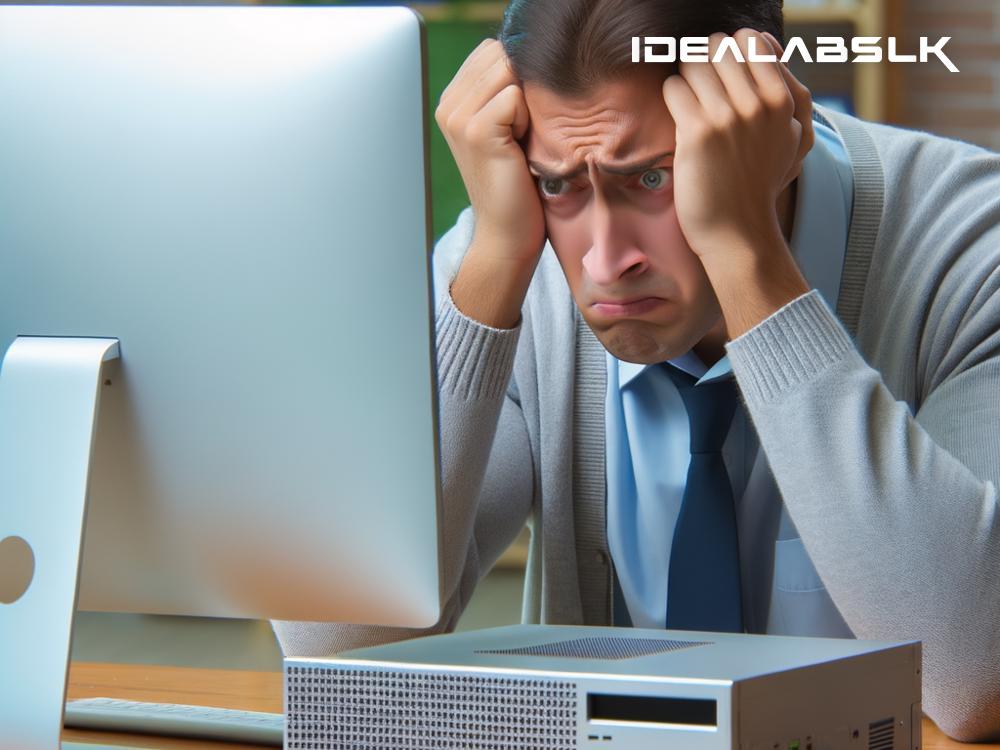Why Your Windows PC Takes Too Long to Shut Down and How to Fix It
Have you ever clicked on the 'Shut Down' button on your Windows PC, only to find yourself staring at the screen for what seems like forever, waiting for it to finally power off? It can be frustrating, especially when you're in a hurry. But why does this happen? And more importantly, how can you fix it? Let's get into the reasons behind this annoying issue and explore some straightforward solutions.
Common Reasons for Slow Shut Down
-
Running Applications and Processes: Sometimes, the applications and processes running in the background can delay the shutting down process. Your computer tries to close these properly before shutting down, which can take up some time.
-
Heavy Start-up Programs: The more programs you have set to start up automatically when you boot your PC, the slower your overall system can become, including the shut down process.
-
System Updates and Installations: Occasionally, Windows updates or installations can be underway, which the system needs to complete before it can shut down.
-
Overloaded System or Corrupted Files: A cluttered system with too much data or corrupted system files can also be reasons for delayed shut downs.
How to Fix a Slow Shut Down
Now that we've looked at possible causes let's dive into how you can speed up your PC's shut down time.
-
Close Programs Before Shutting Down: Make it a habit to close your applications manually before hitting the shut-down button. This simple step can significantly decrease shut down time, as it reduces the computer's workload.
-
Clean Up Your Start-up: Fewer programs at start-up not only help your PC boot faster but also shut down faster. To manage these, type
Task Managerin your search bar, go to the ‘Startup’ tab, and disable any application that doesn’t need to start with Windows. -
Regularly Update Your System: Keep your system up to date. Sometimes, the delay in shut down is due to pending updates or installations. Regular updates also ensure that any bugs causing slow shut downs are fixed.
-
Run Disk Cleanup: Utilize the built-in Disk Cleanup tool to remove temporary files, system files, and other unnecessary items that clutter your system. You can find this tool by searching for
Disk Cleanupin the Windows search bar. -
Check for Malware: Malware can significantly slow down your PC, including the shut down process. Use a trusted antivirus program to scan and remove any malicious software.
-
Check for Corrupted Files: To check for and fix corrupted system files, you can use the System File Checker tool. Open Command Prompt as an administrator, type
sfc /scannow, and press Enter. This process will scan and repair any corrupted files it finds. -
Adjust Power Settings: Sometimes, changing your power setting to High Performance can resolve slow shut down issues, as it can improve overall system performance. Go to Control Panel > Hardware and Sound > Power Options and adjust your settings accordingly.
-
Perform a System Restore: If your PC started shutting down slowly after a particular software installation or system change, performing a system restore might help. This process will revert your system back to a previous state where it was functioning correctly.
-
Clean Your PC Physically: Don't forget the hardware aspect. Dust and overheating can also contribute to slow performance. Clean the inside of your PC or laptop with compressed air, and ensure the fans are working correctly.
-
Consider a Reset: If all else fails, Windows 10 and 11 offer a ‘Reset this PC’ option, which can refresh your system without losing your files. This can often fix persistent issues, including slow shut down times.
Conclusion
A slow shut down can be a symptom of many things, from overloaded system resources to corrupted files. The good news is that with a little troubleshooting, you can significantly reduce your PC's shut down time. Start with simple fixes like closing programs before shutting down and cleaning up your start-up. From there, move on to more in-depth solutions such as performing system checks and updates. Remember, regular maintenance is key to keeping your PC running smoothly and shutting down quickly.

